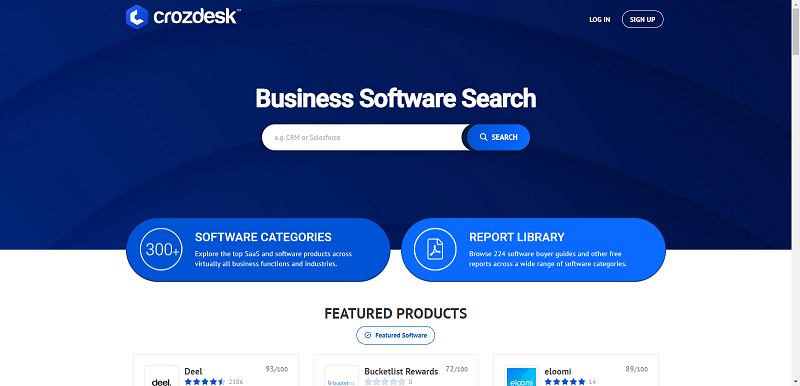Cloud Accounting
Cloud technology has been at the top of the charts of new-age technologies for a long time now. Almost every industry in the world has started realizing its capabilities and integrating cloud strategies into the business model.
This is apparent from the fact that Gartner forecasts a 17 percent growth rate in public cloud services in 2020. When we talk about the accounting industry, in particular, the cloud technology offers a level of mobility and flexibility never experienced before.
The accounting firms that have already adopted cloud have started reaping its benefits and been given a competitive edge. However, there are a few things that they should not know in order to optimize their accounting further. Here are a few –
Cloud Service Delivery Models
There are primarily two cloud models that the accounting firms can choose from –
- SaaS (Software as a Service)– By opting for this cloud model, the accounting solution and cloud platform are both owned by a single company. You do not have to install the accounting software on the local system. You can access the accounting solution directly from their web browser. This eliminates the menial IT tasks and brings a sense of ease into the accounting process. A prime example of this is QuickBooks Online.
- Iaas (Infrastructure as a Service) –In this cloud model, the service providers host the accounting desktop software you are currently using on their cloud infrastructure. Contrary to SaaS, in the case of IaaS, you are opting for the infrastructure and services of the Cloud Service Provider (CSP) for your accounting process. An example of this would be hosting your QuickBooks Enterprise Desktop software on the cloud.
You can choose either cloud models, depending on your accounting requirements and type.
Cloud Deployment Models
A large section of accountants who are currently working on the desktop software does not intend to change their mode of operations. Hence, they want to keep working on desktop accounting solutions and still want the extended features of the cloud.
If you, too, plan to opt for IaaS as a cloud type, there are three deployment models that you can choose from.
- Private Cloud – The private cloud, as the name suggests, is dedicated to a single organization. It can either be created by the organization or chosen as a service from a cloud hosting provider. Hence, you can either create a cloud infrastructure on your premises or rent it from a provider. All the resources in a private cloud are provided in a secure environment, and only you can utilize them.
- Public Cloud –The public cloud refers to the environment where you can opt for part of the cloud infrastructure from a third-party provider. In this type of deployment, you share the same environment with multiple other hosts. Although the provider ensures total security of your data, it is a bit less secure than private cloud.
- Hybrid Cloud – As you might have guessed, the hybrid cloud is a combination of both private and public clouds. You can build a cloud strategy where the most critical part of your accounting process is hosted on the private cloud, and you can choose other services from the public cloud provider.
Perks of Cloud Technology
It would be incomplete talking about the cloud without discussing the benefits it offers. Here are a few –
- Mobility–Cloud helps accountants maintain a work-life balance by offering them the ability of remote access to their accessing software. You can work from their home, outdoor location, or even while traveling. This also helps you increase billable hours as you do not have to waste time commuting to the office.
- Scalability–With cloud accounting, the accounting firms do not have to worry about the growing business requirements as the cloud can be scaled as desired. Hence, if there is a sudden influx of data like in the tax season, you can easily add resources and users to the cloud.
- Reduced Expenses – Cloud optimizes your resource requirements and helps you save costs. By choosing a cloud hosting service, you do not need to purchase high-end hardware for your firm as all the hardware is owned and deployed by the provider. Consequently, the tasks of maintaining and upgrading the IT infrastructure is also the responsibility of the provider.
- Collaboration–With cloud, multiple teammates from distant locations can easily access the same accounting reports. As the accounting software and data are both hosted on the same cloud environment, all one needs to do to access the files is login to the cloud portal. You and other users can login to the cloud and make changes to the same file simultaneously.
- Security –Cloud offers security much robust than the local systems. Consider the scenario that your data is stored on your computer or laptop. If the hardware gets stolen or damaged, all the data is lost. However, in the case of cloud, as the data is stored in remote servers, you can just pick up another smartphone, laptop, or tablet to access your accounting files.
Tips to Choose a Cloud Hosting Provider
If you make a decision to choose a cloud hosting provider, here are some features to look out for –
- Industry-specific Expertise–The hosting provider should offer accounting-specific cloud solutions and should have experience in hosting accounting software like QuickBooks and Sage.
- Business Continuity and Disaster Recovery(BCDR) –The BCDR plans should be deployed by the provider to ensure total protection of your data from disruptive events like earthquakes or fires.
- Automated Backup – To relieve yourself from the worries of data loss, choose a cloud provider that offers automated backup solutions with high retention time.
- Advanced Security –Keeping the criticality of data security in mind, choose a provider that deploys advanced security protocols like data encryption, multi-factor authentication, Intrusion Detection and Prevention System, among others.
Final Note
Adopting cloud technology can help accounting firms stay ahead of their competitors by optimizing the accounting workflow and reducing capital and operational costs. However, it is imperative that the cloud type or deployment model is chosen after a thorough analysis of the current and futuristic accounting requirements. Moreover, the decision to choose a cloud service provider should also be made after proper research.
By Dr. Sangeeta Chhabra





